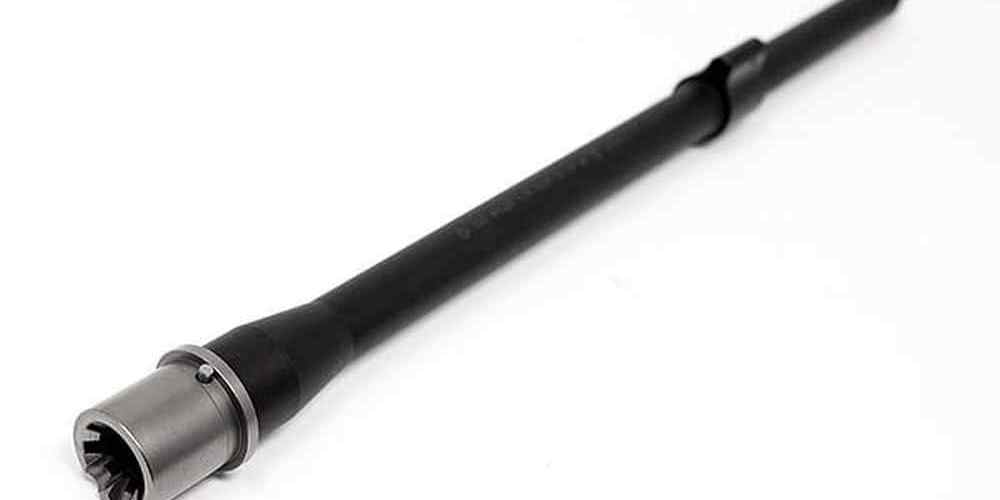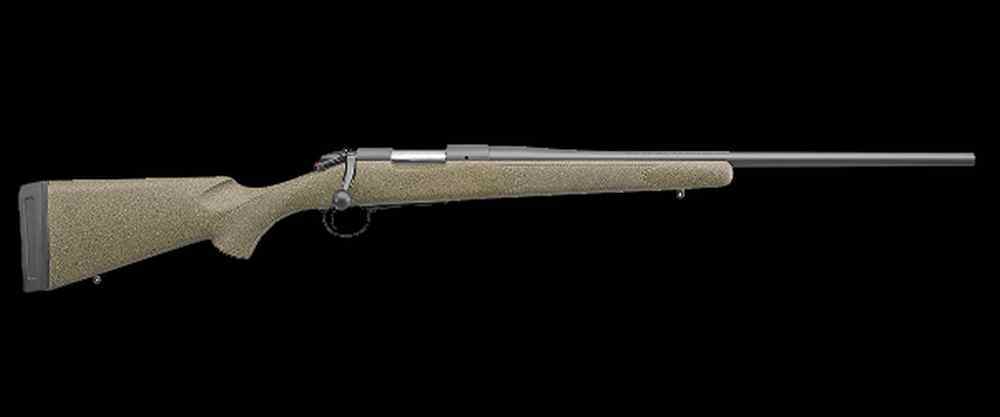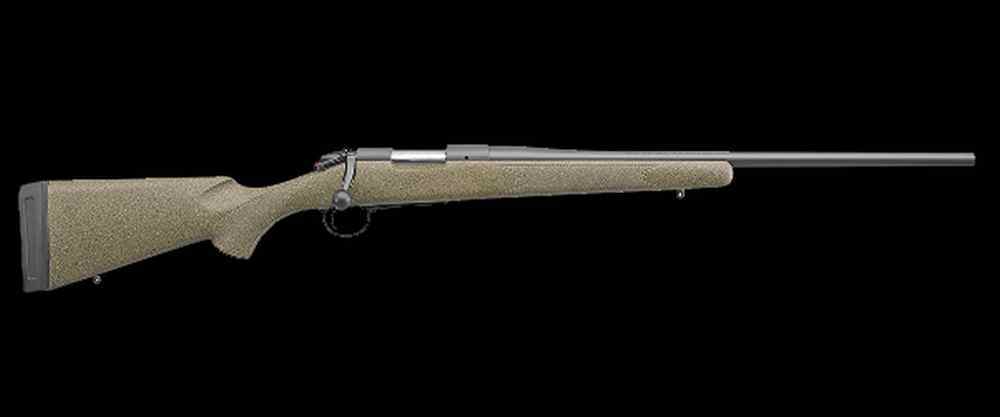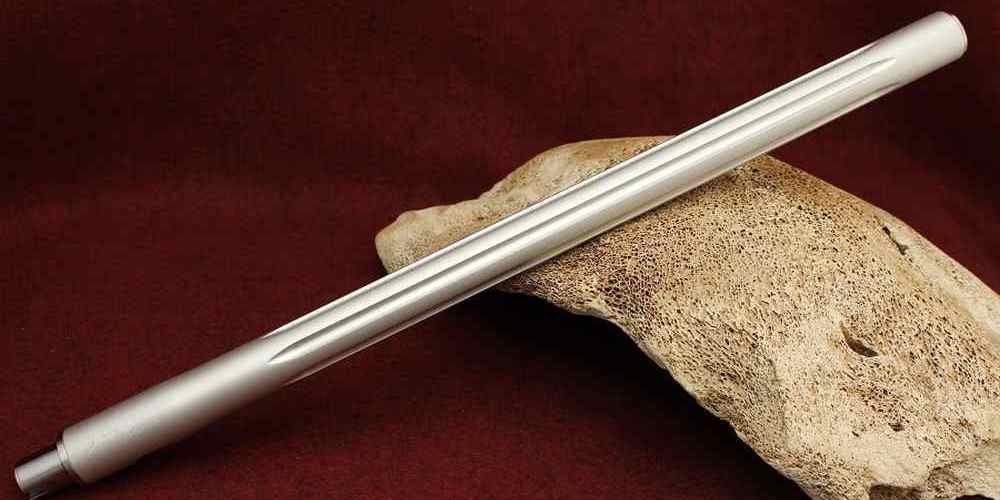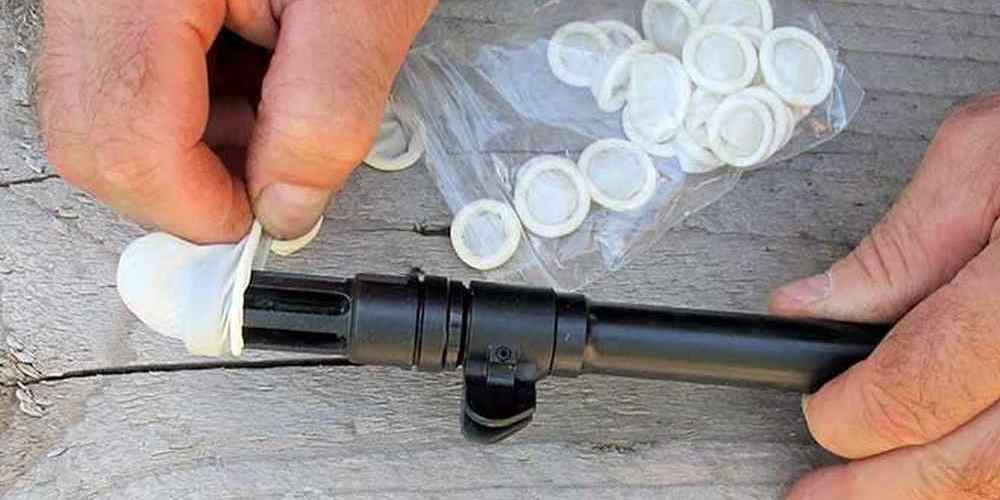“Enhanced durability and accuracy with nitride treatment for rifle barrels – weighing the benefits and drawbacks.”
Improved Accuracy
Nitride treatment for rifle barrels has become increasingly popular among gun enthusiasts and manufacturers in recent years. This process involves treating the surface of the barrel with a nitriding compound to improve its hardness, durability, and corrosion resistance. While nitride treatment offers several benefits, there are also some drawbacks to consider when deciding whether to use this method on your rifle barrel.
One of the main advantages of nitride treatment is its ability to increase the hardness of the barrel surface. This can help to extend the life of the barrel and reduce wear and tear over time. A harder surface is also less prone to scratching and pitting, which can affect the accuracy of your shots. By increasing the hardness of the barrel, nitride treatment can help to maintain consistent performance and improve overall accuracy.
In addition to increased hardness, nitride treatment also improves the corrosion resistance of the barrel. This is especially important for rifles that are used in harsh environments or exposed to moisture. Corrosion can weaken the barrel and affect its performance, so having a nitride-treated barrel can help to prevent rust and other forms of corrosion from developing. This can ultimately extend the life of your rifle and ensure that it continues to perform at its best.
Another benefit of nitride treatment is its ability to improve the lubricity of the barrel surface. This can help to reduce friction between the bullet and the barrel, which can result in smoother operation and improved accuracy. By reducing friction, nitride treatment can also help to reduce heat buildup in the barrel, which can affect the consistency of your shots. Overall, the improved lubricity provided by nitride treatment can help to enhance the performance of your rifle and make it more reliable in various shooting conditions.
Despite these benefits, there are some drawbacks to consider when using nitride treatment on rifle barrels. One potential downside is the cost of the treatment itself. Nitride treatment can be more expensive than other surface treatments, which may deter some gun owners from choosing this option. Additionally, not all rifles are compatible with nitride treatment, so it is important to consult with a professional gunsmith before proceeding with this process.
Another potential drawback of nitride treatment is the risk of over-treating the barrel. If the nitriding compound is applied incorrectly or for too long, it can affect the metallurgical properties of the barrel and potentially weaken its structure. This can lead to reduced accuracy and performance, so it is crucial to ensure that the nitride treatment is carried out by a qualified professional with experience in this process.
In conclusion, nitride treatment for rifle barrels offers several benefits, including increased hardness, improved corrosion resistance, and enhanced lubricity. These advantages can help to improve the accuracy and performance of your rifle, making it a popular choice among gun enthusiasts. However, there are also some drawbacks to consider, such as the cost of the treatment and the risk of over-treating the barrel. Ultimately, it is important to weigh the pros and cons of nitride treatment before deciding whether to use this method on your rifle barrel.
Increased Barrel Life
Nitride treatment for rifle barrels has become increasingly popular among gun enthusiasts and manufacturers due to its ability to increase barrel life and improve overall performance. This process involves treating the surface of the barrel with a nitriding compound, which creates a hard, corrosion-resistant layer that can withstand high temperatures and pressures. While nitride treatment offers several benefits, there are also some drawbacks to consider before deciding whether to use this method on your rifle barrel.
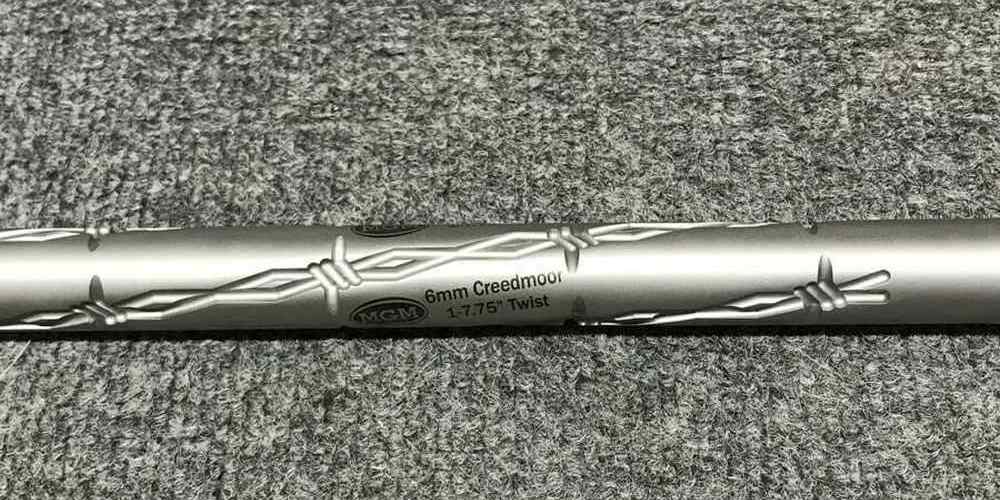
One of the main advantages of nitride treatment is its ability to significantly increase the lifespan of a rifle barrel. The hard, durable layer created by the nitriding process helps to protect the barrel from wear and corrosion, which can extend the barrel’s life by thousands of rounds. This can be especially beneficial for competitive shooters or hunters who put a lot of rounds through their rifles and want to avoid the hassle and expense of replacing barrels frequently.
In addition to increasing barrel life, nitride treatment can also improve the overall performance of a rifle. The hard surface created by the nitriding process can reduce friction and heat buildup, which can lead to more consistent shot placement and improved accuracy. This can be particularly important for precision shooting applications where small variations in barrel temperature or friction can have a significant impact on shot placement.
Another advantage of nitride treatment is its ability to resist corrosion and rust. The nitriding process creates a protective layer on the surface of the barrel that helps to prevent moisture and other corrosive elements from causing damage. This can be especially important for rifles that are used in harsh environments or exposed to the elements frequently, as it can help to prolong the life of the barrel and maintain its performance over time.
Despite its many benefits, nitride treatment does have some drawbacks that should be considered before deciding to use this method on a rifle barrel. One of the main concerns with nitride treatment is the potential for reduced barrel accuracy. While nitriding can improve overall performance in some cases, it can also alter the internal dimensions of the barrel slightly, which can affect the way the bullet travels down the barrel and ultimately impact accuracy.
Another potential drawback of nitride treatment is the cost. While the initial cost of nitriding a rifle barrel may be relatively low compared to other barrel treatments, it is important to consider the long-term costs associated with maintaining and re-treating the barrel over time. Additionally, not all rifles are suitable for nitride treatment, so it is important to consult with a qualified gunsmith or manufacturer before deciding to proceed with this process.
In conclusion, nitride treatment for rifle barrels offers several benefits, including increased barrel life, improved performance, and corrosion resistance. However, there are also some drawbacks to consider, such as potential accuracy issues and long-term costs. Before deciding whether to use nitride treatment on your rifle barrel, it is important to weigh the pros and cons carefully and consult with a knowledgeable professional to determine the best course of action for your specific needs.
Enhanced Corrosion Resistance
Nitride treatment is a popular method used to enhance the corrosion resistance of rifle barrels. This process involves treating the surface of the barrel with a nitriding compound, which forms a hard layer that protects the metal from rust and other forms of corrosion. While nitride treatment offers several benefits, there are also some drawbacks to consider.
One of the main advantages of nitride treatment is its ability to significantly increase the lifespan of a rifle barrel. The hard nitride layer provides a durable barrier against moisture, chemicals, and other corrosive elements that can cause damage to the metal. This means that a rifle barrel treated with nitride is less likely to rust or degrade over time, resulting in a longer-lasting and more reliable firearm.
In addition to its corrosion resistance, nitride treatment also offers improved wear resistance. The hard nitride layer is highly resistant to abrasion and friction, which can help reduce the wear and tear on the barrel during use. This can result in a smoother shooting experience and a more consistent performance over time.
Another benefit of nitride treatment is its ability to improve the accuracy of a rifle. The hard nitride layer creates a more uniform surface on the barrel, which can help reduce the effects of barrel fouling and other factors that can affect accuracy. This can result in tighter shot groups and improved overall performance for the shooter.
Despite these benefits, there are some drawbacks to consider when it comes to nitride treatment for rifle barrels. One of the main concerns is the potential for reduced barrel life. While nitride treatment can increase the lifespan of a barrel in some cases, it can also lead to premature wear and degradation in others. This is especially true if the nitride layer is not applied correctly or if the barrel is subjected to excessive heat or pressure during the treatment process.
Another potential drawback of nitride treatment is the cost. While the initial cost of nitride treatment may be relatively low compared to other methods of enhancing corrosion resistance, the long-term costs can add up over time. This is especially true if the nitride layer needs to be reapplied periodically to maintain its effectiveness.
In conclusion, nitride treatment offers several benefits for rifle barrels, including enhanced corrosion resistance, improved wear resistance, and increased accuracy. However, there are also some drawbacks to consider, such as the potential for reduced barrel life and the cost of the treatment. Ultimately, the decision to use nitride treatment for a rifle barrel will depend on the specific needs and preferences of the shooter. It is important to weigh the pros and cons carefully before making a decision to ensure that the chosen treatment method meets the desired goals for the firearm.
Potential Decrease in Muzzle Velocity
Nitride treatment for rifle barrels has become increasingly popular among gun enthusiasts and manufacturers in recent years. This process involves treating the surface of the barrel with a nitride compound to increase its hardness and durability. While there are many benefits to nitride treatment, there are also some potential drawbacks that gun owners should be aware of.
One of the main concerns with nitride treatment is the potential decrease in muzzle velocity. When a barrel is nitride treated, the surface of the metal is hardened, which can affect the way the bullet travels down the barrel. Some gun owners have reported a slight decrease in muzzle velocity after nitride treatment, which can impact the accuracy and performance of the rifle.
However, it is important to note that the decrease in muzzle velocity is typically minimal and may not be noticeable to the average shooter. In fact, many gun owners have reported that the benefits of nitride treatment, such as increased barrel life and corrosion resistance, far outweigh any potential decrease in muzzle velocity.
Another potential drawback of nitride treatment is the cost. Nitride treatment can be more expensive than traditional barrel treatments, such as chrome lining or stainless steel. This cost can be prohibitive for some gun owners, especially those on a tight budget. However, many gun owners believe that the long-term benefits of nitride treatment justify the initial investment.
Despite these potential drawbacks, there are many benefits to nitride treatment for rifle barrels. One of the main advantages is increased barrel life. Nitride treatment can significantly extend the life of a rifle barrel by reducing wear and corrosion. This can save gun owners money in the long run by reducing the need for frequent barrel replacements.
In addition to increased barrel life, nitride treatment also offers superior corrosion resistance. The nitride compound forms a protective layer on the surface of the barrel, preventing rust and corrosion from forming. This is especially important for gun owners who live in humid or wet climates, where moisture can quickly damage a rifle barrel.
Furthermore, nitride treatment can improve the overall accuracy and performance of a rifle. The hardened surface of the barrel can help to reduce barrel whip and vibration, resulting in more consistent shot placement. This can be especially beneficial for competitive shooters who require pinpoint accuracy in their shots.
Overall, nitride treatment for rifle barrels has both pros and cons that gun owners should consider before making a decision. While there may be a slight decrease in muzzle velocity and a higher initial cost, the benefits of increased barrel life, corrosion resistance, and improved accuracy may outweigh these drawbacks for many shooters. Ultimately, the decision to nitride treat a rifle barrel will depend on individual preferences and priorities.
Cost of Nitride Treatment
Nitride treatment is a popular method used to enhance the durability and performance of rifle barrels. This process involves treating the surface of the barrel with a nitriding compound, which creates a hard, corrosion-resistant layer that can improve the barrel’s lifespan and accuracy. While nitride treatment offers several benefits, it is important to consider the cost associated with this process.
The cost of nitride treatment can vary depending on the size and type of rifle barrel being treated. In general, the cost of nitride treatment is higher than traditional methods of barrel treatment, such as chrome lining or stainless steel. This is because nitride treatment is a more complex and time-consuming process that requires specialized equipment and expertise.
One of the main factors that contribute to the cost of nitride treatment is the type of nitriding compound used. There are several different types of nitriding compounds available, each with its own unique properties and benefits. Some compounds are more expensive than others, which can impact the overall cost of the treatment.
In addition to the cost of the nitriding compound, other factors that can affect the cost of nitride treatment include the size and complexity of the rifle barrel, as well as the location of the treatment facility. Larger barrels or barrels with intricate designs may require more time and resources to treat, which can increase the overall cost of the process. Additionally, treatment facilities located in areas with higher operating costs may charge more for their services.
Despite the higher cost of nitride treatment, many rifle owners believe that the benefits outweigh the expense. Nitride-treated barrels are known for their increased durability and resistance to corrosion, which can help extend the lifespan of the barrel and improve its performance over time. Additionally, nitride treatment can enhance the accuracy of the rifle by reducing friction and wear on the barrel, resulting in more consistent shot placement.
For rifle owners who are considering nitride treatment for their barrels, it is important to weigh the pros and cons of this process. While nitride treatment offers several advantages, such as increased durability and improved performance, it is important to consider the cost of the treatment and whether it fits within your budget. It may be helpful to research different treatment facilities and compare prices to find the best option for your needs.
In conclusion, nitride treatment is a popular method used to enhance the durability and performance of rifle barrels. While this process offers several benefits, it is important to consider the cost associated with nitride treatment. Factors such as the type of nitriding compound used, the size and complexity of the barrel, and the location of the treatment facility can all impact the overall cost of the process. Despite the higher cost, many rifle owners believe that the benefits of nitride treatment justify the expense. By weighing the pros and cons of nitride treatment and researching different treatment facilities, rifle owners can make an informed decision about whether nitride treatment is right for their barrels.



